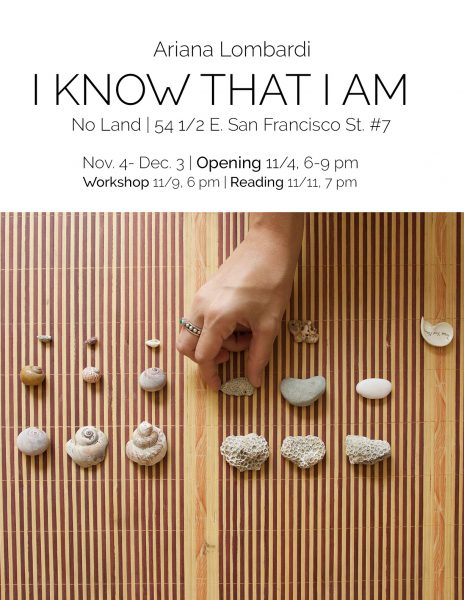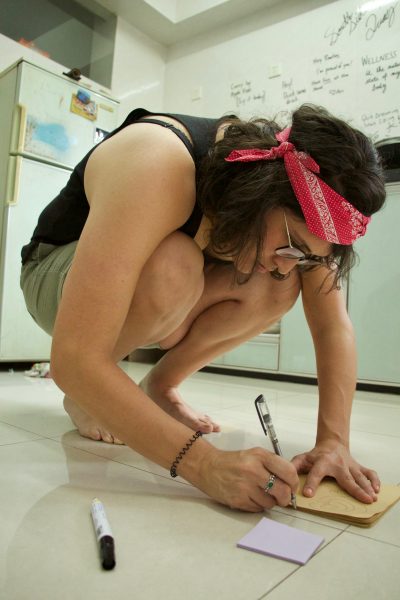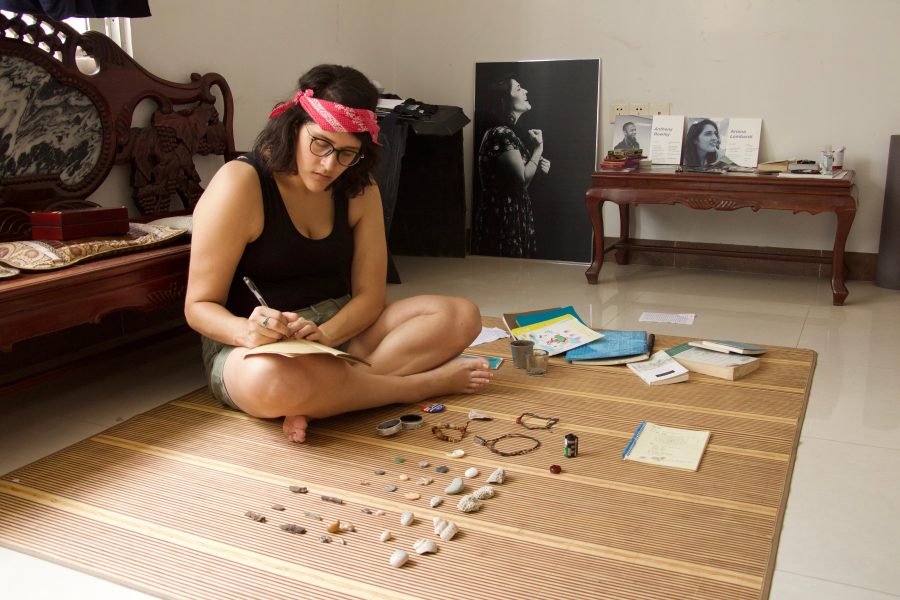Tags
Related Posts
Share This
Ariana Lombardi’s Workshop
At the No Land Art Space on Nov. 9, people were invited to Santa Fe University of Art and Design creative writing alum Ariana Lombardi’s show I Know That I Am to participate in a creative writing workshop that focused on the movement of language. The gallery consisted of the mementos and writing Lombardi did while she traveled around the world.
Lombardi started the workshop by deconstructing the sounds of the language within context, tone and movement. She used the word “possession” as an example. She went around the room asking for the definition of possession, the words associated with possession and then she asked participates to give possession a movement. Everyone did the same movement: reaching out and pulling their hands to themselves as if grabbing something. “This is why I know,” Lombardi said, “that that is in a word. That is the meaning, that is the movement of the word possession.” Then she had participants draw over the word possession, the movement of the word. “We have to consider all of this stuff as we work tonight. And know that is has an effect on the meaning,” Lombardi said. “But we’re not concerning ourselves with meaning tonight. We’re just concerning ourselves with sound and words. And we’re going to sculpt words out of the sound.”
The next half of the workshop focused on tuning the ear to the motion of sound. Participants listened carefully to the sounds of the alphabet, then made new characters according to the motion of that sound. All of these exercises lead to the final activity. A Slavic poem, “Wedding” by Vasko Popa, was distributed to the class and a recording of the poem was played on repeat. Lombardi had attendees draw the rhythm of the poem, mark certain places where a word was emphasized, then write the words they were hearing in the language. Each made a unique poem, but the similarities of rhythm were the same and even some words were repeated in two very different poems. After that, workshop members were given the translated text and could see how tonally their poems could match up to the original, even if contextually they were nothing alike.
Lombardi’s workshop was an interesting experience, slowing down to listen to the sounds of language is not something you would normally do, but tone, movement and context of words is a big part of the language. Lombardi has a firm hold on these concepts. Just a glance at her journals showed Lombardi’s enthusiasm and we can see that she is completely dedicated to her craft.









 Jackalope Magazine is the student magazine of Santa Fe University of Art and Design. Building on the interdisciplinary nature of our education, we aim to showcase the talent of our university and character of our city.
Jackalope Magazine is the student magazine of Santa Fe University of Art and Design. Building on the interdisciplinary nature of our education, we aim to showcase the talent of our university and character of our city.
Recent Comments